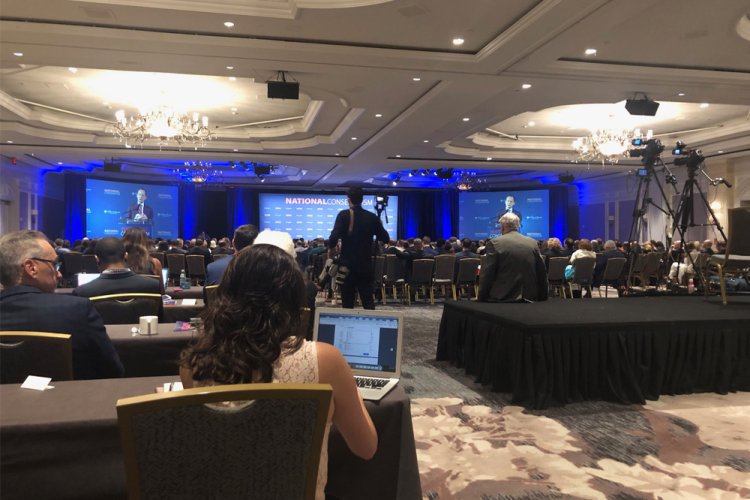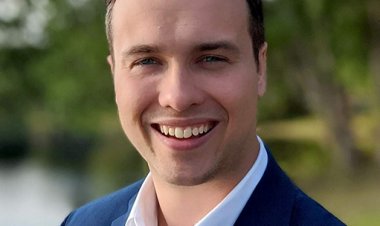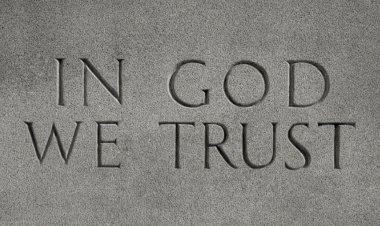Orlando's Recent National Conservatism Conference Indicates Future of GOP

Orlando: a land where dreams come true not only for the millions of children and families visiting each year, but now, possibly for activists and politicians as well. A recent high profile conference supporting the ascendant right's latest movement, National Conservatism, aimed to do just that politically. The National Conservatism Conference laid out a new right-wing vision for an uncertain future.
The conference took place October 31st to November 2nd.
The high profile conference featured speakers such as Senators Ted Cruz (R- TX) , Josh Hawley (R-MO) and Florida's own Marco Rubio (R).
Although the conference attracted politicos from all over the United States, many local GOP operatives, activists and elected officials were also in attendance, including State Representative Anthony Sabatini of Howey-in-the-Hills, currently running for congressional district 7 in a presumptive bid to oust incumbent Representative Stephanie Murphy.
The movement is considered by many to be the intellectual core of new wave conservatism.
The movement can be broken down into three distinctive groups.
First, people over 50 who are veterans of conservative circles who recently changed their views, shifting rightward as a result of actions by the radical left.
Chris Demuth, a prime example, served for many years as president of the American Enterprise Institute, which some have called "the Church of England of American conservatism". Though now Demuth has gone populist.
“NatCons are conservatives who have been mugged by reality,” he told the conference. Seventy-three-year-old Glenn Loury, a Brown University economist, was a conservative, then a progressive, and now he’s back on the right: “What has happened to public discourse about race has radicalized me.”
The second group is composed of mid-career politicians and operatives who seek to better navigate the age of populism (including the likes of Ted Cruz (Princeton, Harvard), J. D. Vance (Yale Law), and Josh Hawley (Stanford and Yale).
The third and largest group is the young, who came of age in the era of Facebook and MSNBC and identity politics and colleges smothered by progressive sermonizing. This group reacted to the sanctimony of academia by running in the other direction.
The Information Age has brought about changes leading to National Conservatism by forcing the movement to look at the bare naked facts of society. The Libertarian idea of "start your own Facebook if you don't like it" seems far less appealing in light of the near cartel status of Silicon Valley's most powerful firms.
At the center of this blue tyranny are the great masters of corrupt tech capitalism, the Big Tech czars who decide in secret what ideas get promoted, what stories get suppressed.
“The left’s ambition is to create a world beyond belonging,” said Hawley. “Their grand ambition is to deconstruct the United States of America.”
In the minds of those at the conference, that ambition in large part depends on altering the culture, which means controlling the institutions.
“The left’s attack is on America. The left hates America,” said Cruz. “It is the left that is trying to use culture as a tool to destroy America.”
Copying the tactics of the left resonates as one of the ways many attendees hope to fight back. Although some such as black conservative Glenn Loury defended Western Liberalism and the current framework of change, countless others launched outright attacks on the idea as too far gone.
Despite the right's reputation for anti-Semetism, many of the conference's biggest proponents and organizers were Jews themselves.
Yoram Hazony, the chief intellectual architect of national conservatism, is an Orthodox Jew who went to Princeton before moving to Israel. He argues that you can’t have a society that embraces government neutrality and tries to relegate values to the private sphere. The public realm eventually eviscerates private values, especially when public communication is controlled by a small oligarchic elite. If conservatives want to stand up to the pseudo-religion of wokeism, they have to put traditional religion at the center of their political project.
Another Israeli political philosopher at the conference, Ofir Haivry, argued that Americans shouldn’t delude themselves into thinking that a nation is built out of high-minded liberal abstractions, like the Bill of Rights. A nation is, instead, a cultural tradition, a common language, a set of rituals and beliefs, and a religious order—a collective cultural identity.
The history of Judaism demonstrates, Haivry argues, that you don’t need a state or a political order to be a nation.
Hazony argued that the American cultural identity is Christian—and has to be if it is not going to succumb to the woke onslaught. If 80 percent of Americans are Christian, Hazony reasoned, then Christian values should dominate. “Majority cultures have the right to establish the ruling culture, and minority cultures have the right to be decently treated,” he said. “To take the minority view and say the minority has the ability to stamp out the views of the majority—that seems to me to be completely crazy.”
This shift in opinion regarding traditionally orthodox Republican ideas may signal a move toward more pragmatic, state-oriented solutions, a sort of "Theodore Roosevelt moment," and a departure from Reaganism. The conference serves as a microcosm of shifting winds that political observers would be wise to keep their eyes open for: "big government" conservatism may be just around the corner, and perhaps not soon enough for the beleaguered and decrepit GOP.

 Marshall S. Swanson
Marshall S. Swanson 
















